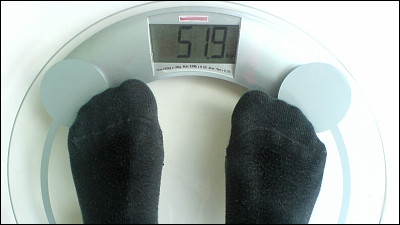Research results that 'work 1 day a week' is all necessary for mental health

by
Many research results have been published to review people's work, such as ' 4 days a week to improve the efficiency of the labor system, ' and ' up to 39 hours a week for people to work healthily .' It was concluded that one day's work improves mental health.
A shorter working week for everyone: How much paid work is needed for mental health and well-being?-ScienceDirect
https://www.sciencedirect.com/science/article/abs/pii/S0277953619303284
Cambridge Judge Business School: The Employment Dosage: How Much Work is Needed for Health and Wellbeing?
https://www.cbr.cam.ac.uk/research/research-projects/the-employment-dosage-how-much-work-is-needed-for-health-and-wellbeing/
Just one day of work a week improves mental health, study suggestions | Society | The Guardian
https://www.theguardian.com/society/2019/jun/19/working-one-day-week-improves-mental-health-study-suggests

Past research has shown that non-employment is linked to poor mental health, and researchers have for this reason “employment” is “structured time” by people, “social connections”, “self-awareness” I thought it was for giving. On the other hand, no one was trying to find out how much work to get the benefits of these jobs, says research co-author Brendan Burchell.
So Burchell and colleagues analyzed a large-scale survey of the United Kingdom in 2009. The survey covered 71,000 people aged 16 to 64 who answered the questionnaire for over two years. The questionnaires that the subjects answered in the survey conducted a self-assessment on the state of mental health and satisfaction with life, as well as answering points such as employment status and working hours.
As a result, first of all, even if it is considered that income, age, presence or absence of children, medical history, it can not be changed from 'non-employment' to 'employment' if people are 'poorest mental health (worst mental health ) To reduce the risk of becoming a category by 30%. However, it seems that this decrease did not change between 'people who work only one day a week' and 'people who work more than that'.

by
In addition, it turned out that the benefits that working for several hours have on mental health are also seen in women and men who have become unable to work for some reason such as disability, nursing care or retirement.
And further research has shown that mental health does not deteriorate and does not lead to well-being , even if it is less than standard work hours 36 to 40 hours a week. it was done.
However, it should be noted that this study did not consider the influence of personal activities other than work, and that it showed relevance and did not prove causality.
In recent years, the change of employment by automation and the necessity of introduction of basic income have been considered, but this research supports the importance of employment and short working hours for mental health. 'It's wiser to reduce overall employment time than to make some people unemployed,' the researchers said, adding holidays as a solution.

by Toa Heftiba Şinca
Professor Mike Slade of the University of Nottingham 'shows the importance of a socially valuable role such as employment' in response to the presentation of this research, but 'does not avoid simplifying and interpreting the research results. No, just reducing work hours for all will increase inequity in society, create poor people, and create situations that force people who can not work.
Related Posts:
in Note, Posted by darkhorse_log







